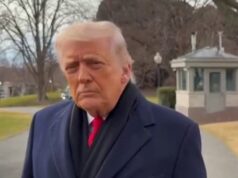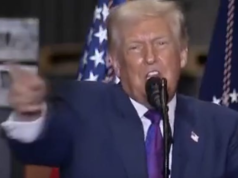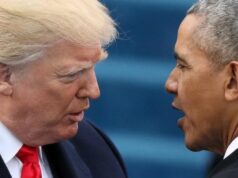Merrick Garland’s DOJ told House Judiciary Chairman Jim Jordan that his subpoenas for two FBI agents involved in the investigation into Hunter Biden cannot be enforced due to an ongoing investigation.
Last week House Republicans subpoenaed FBI special agents Thomas Sobocinski and Ryeshia Holley to compel testimony on political interference and preferential treatment in the Hunter Biden investigation.
Garland’s DOJ said the subpoenas couldn’t be enforced because Congressman Jim Jordan barred DOJ lawyers at their depositions.
“The subpoenas issued by the Committee prohibit the attendance of agency counsel at appearances by two FBI employees where the Committee has indicated it will ask questions regarding information they learned within the scope of their official duties, including regarding the ongoing criminal investigation,” Carlos Uriarte, DOJ assistant attorney general wrote.
“These subpoenas lack legal effect and cannot constitutionally be enforced,” Uriarte added.
The Washington Examiner reported:
The Department of Justice informed the House Judiciary Committee on Tuesday night that it would not cooperate with subpoenas for two FBI agents involved in the department’s investigation of Hunter Biden because of the committee’s stipulations for their depositions.
Carlos Uriarte, DOJ assistant attorney general, claimed in a letter obtained by the Washington Examiner to committee Chairman Jim Jordan (R-OH) that his subpoenas to the two agents “lack legal effect and cannot constitutionally be enforced” because Jordan had prohibited DOJ lawyers at their depositions.
He also noted that compelling testimony from the pair of FBI officials, special agents Thomas Sobocinski and Ryeshia Holley of the FBI’s Baltimore Field Office, was “premature” because the DOJ was open to continuing “discussions” with Jordan.
Jordan’s deposition rule aligns with House rules, which do not permit department counsel at depositions. The DOJ and the committee could, however, negotiate to have Sobocinski and Holley appear voluntarily with DOJ lawyers instead of appearing in the form of a deposition.
The letter from the DOJ was in response to the subpoenas issued by the Judiciary and House Ways and Means to compel testimony witness testimony on political interference and preferential treatment in the Hunter Biden investigation.
Republican lawmakers last week issued the following press release:
According to sworn whistleblower testimony, U.S. Attorney for the District of Delaware David Weiss stated during an October 7, 2022, meeting with DOJ and IRS personnel that “he is not the deciding person on whether charges are filed” against Hunter Biden and that in multiple instances his efforts to bring charges in multiple jurisdictions were denied. This was documented in an email sent the day of the meeting, and provided to the Ways and Means Committee.
Yet Attorney General Merrick Garland previously testified before Congress that Weiss had all the authority necessary to pursue charges and Mr. Weiss told Congress that he had “ultimate” authority over the case.
- April 2022 – Garland testifies before the Senate that U.S. Attorney David Weiss is “supervising the investigation” and “is in charge of that investigation.” He also testifies that “there will not be interference of any political or improper kind.”
- March 2023 – Garland again testifies before a Senate Committee and is asked whether USAO Weiss had authority to bring charges outside of Delaware without Special Counsel status. Garland replies:“The US Attorney in Delaware has been advised that he has full authority to make those kind[s] of referrals that you are talking about, or bring cases in other jurisdictions if he feels it’s necessary and I will assure that if he does, he will be able to do that…I have promised to ensure that he is able to carry out his investigation and that he be able to run it and if needs to bring it in another jurisdiction he will have full authority to do that.”
- June 7, 2023 – U.S. Attorney Weiss sends a letter to House Judiciary Committee Chairman Jim Jordan claiming he had full authority over the investigation and to bring charges in the case.
Only after a sweetheart plea deal fell apart during a hearing before a federal judge in Delaware did AG Garland designate Mr. Weiss as Special Counsel, raising concerns that the Attorney General’s and Mr. Weiss’s statements to Congress were not truthful.
The subpoenas were sent to the following individuals:









